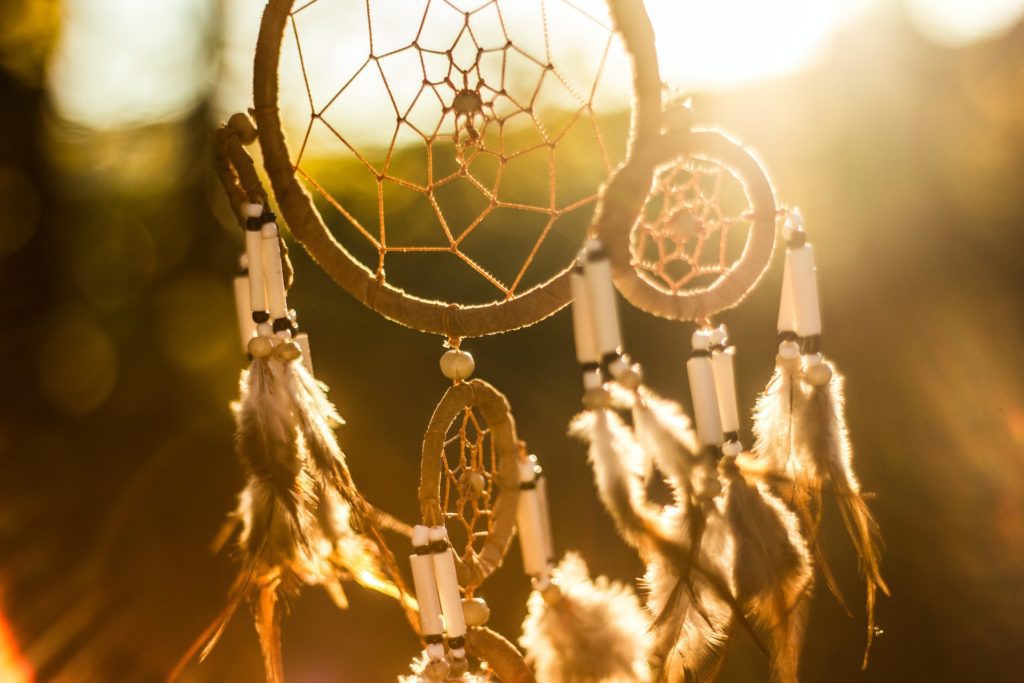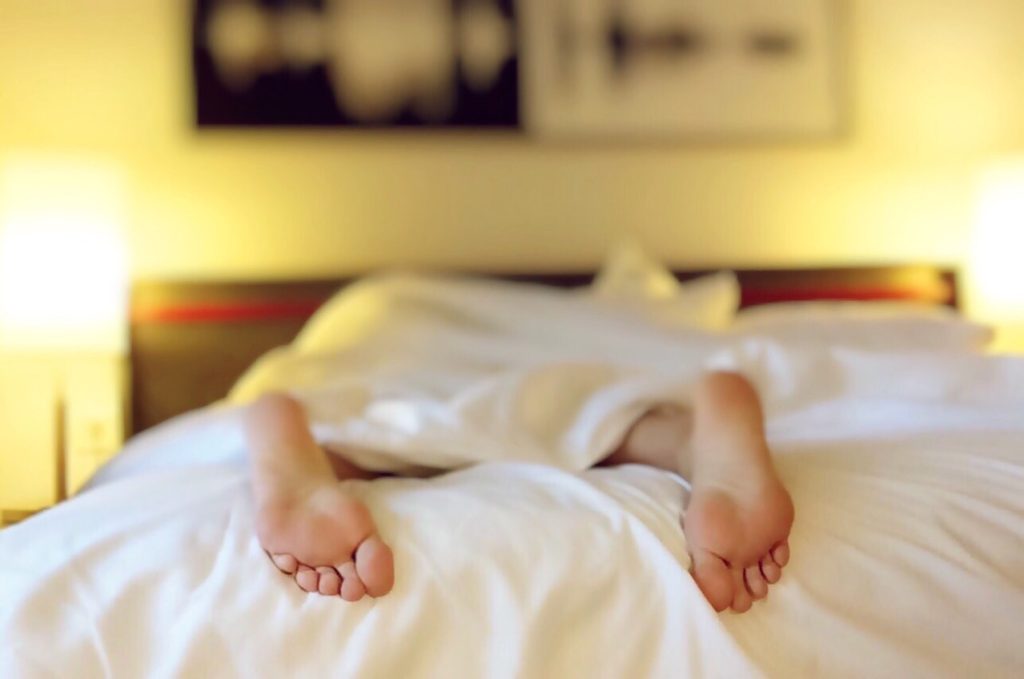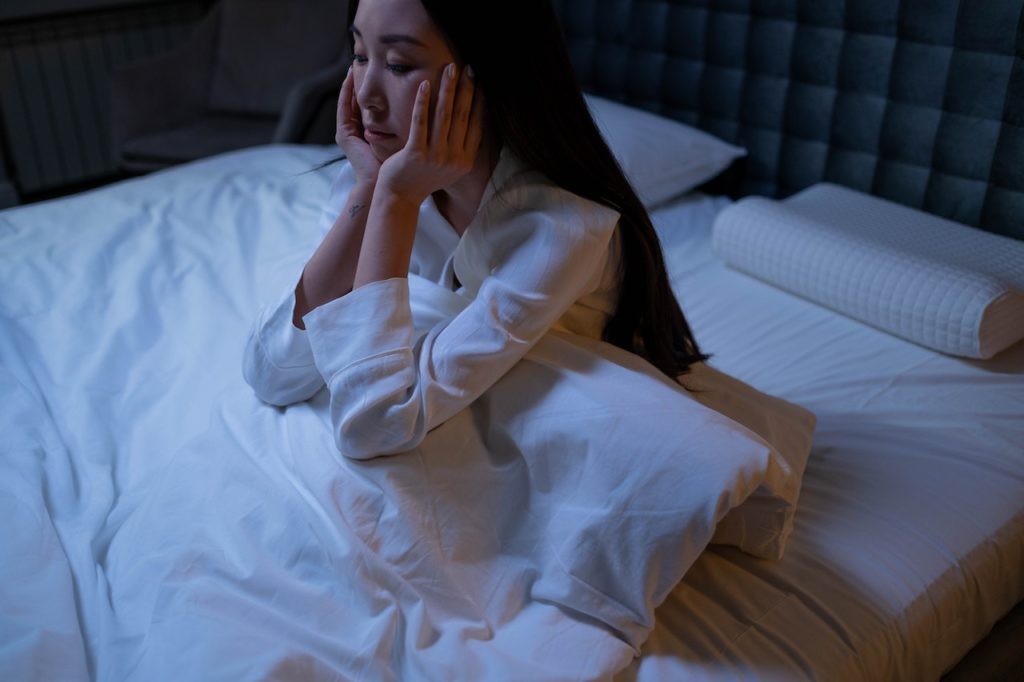While most of us have had at least one unpleasant dream, chronic, severe nightmares constitute a distinct sleep condition. Research suggests 2-8% of the population suffers daily disruptive nightmares. So it is worth asking, does medical marijuana help prevent nightmares?
It has demonstrated effectiveness in treating nightmares. However, observing changes often take a long time, and its efficacy may depend on the underlying reason for the dreams.
Although, many other drugs that alleviate nocturnal terror also come with a laundry list of unwanted effects. Thus, many people who use it feel marijuana for medical purposes is a more secure and possibly more efficient option. Possible benefits include lessened anxiety, sadness, and insomnia.
Furthermore, medical marijuana may provide an option when anti-anxiety or narcotic-based pain medicine is the root cause of nightmares.

The Impact of Marijuana on Sleep
For decades, federal prohibitions prevented thorough exploration of marijuana’s potential medical benefits. Parties believe more research into the potential medical utility could yield promising results if legal constraints are relaxed, allowing for increased access to medical and recreational usage. Regardless, preliminary results in the scientific literature warrant scrutiny.
CBD Vs THC
According to a preliminary study, CBD may have a bigger effect on improving sleep. While THC may shorten sleep latency (the amount of time it takes before you fall asleep), it may reduce sleep quality in the long run by inhibiting slow-wave sleep.
Synthetic Cannabinoids
Synthetic cannabinoids like nabilone and dronabinol, which operate on serotonin, may provide short-term advantages for sleep apnea. This possible effect needs more research; no drugs are available to address the illness. Instead, the standard treatment for this illness is CPAP therapy or oral appliance use.
CBD’s ability to reduce REM sleep could help people with REM sleep behavior disorder, which causes them to act out their dreams. For some people, returning to REM sleep after marijuana withdrawal could have serious consequences.

does cannabic help prevent nightmares?
The scientists asked themselves, does marijuana help prevent nightmares? The DSM-5 specifies sleep problems like nightmares as a symptom of post-traumatic stress disorder. Recent research has shown that patients with PTSD who suffer from more frequent and severe sleep disturbances are also likely to have more severe PTSD symptoms. Therefore, many have hypothesized that cannabis can help patients with PTSD sleep better.
Although studies on the effects of cannabis on sleep are still in their infancy, preliminary results suggest that individuals with cancer who are prescribed cannabis for medical purposes report improved sleep quality. The association between cannabis and sleep in people with post-traumatic stress disorder is an area of particular interest because these individuals frequently qualify for medical cannabis treatments in jurisdictions having a medical cannabis program.
The participants in this new observational study were a cohort of Israeli medical cannabis cardholders instructed to keep an electronic diary twice daily, including their sleep and cannabis use patterns. The study’s authors wanted to know if patients who took medical Marijuana before bed experienced fewer nighttime awakenings, earlier morning wake-ups, or more frequent nightmares.
Key Takeaways From the Study
While the period between cannabis usage and sleep has a statistically significant effect on nightmares, it does not work on early morning awakenings or nighttime awakenings. The study indicated that the shorter the time between using cannabis and falling asleep, the less likely the subject was to report having nightmares.
Sleeping with Cannabis
Different cannabis strains take different amounts of time to work. Smoking cannabis has instant effects, whereas edibles must first pass through your digestive system.
Smoked cannabis effects vary depending on the person, length of inhalation, number of inhalations, and other factors. THC peaks after 10 minutes smoking.

Noticeable Effects of Cannabis
Because cannabis has several strains and affects people differently, you may need to experiment to discover the right format, dosage, and time. Psychoactive THC has other effects besides encouraging sleep. You may either feel sleepy, calm, ecstatic, or invigorated.
Cannabinoids may cause dizziness, nausea, weariness, dry mouth, vomiting, confusion, loss of balance, and hallucinations. Anxiety, panic, and paranoia may occur.
It can help, but talk to your doc
While there is some evidence that when taken correctly marijuana users could be less likely to experience nightmares, it’s always best to speak with a medical professional. Especially when considering the likelihood of underlying issues causing nightmares. Also, read the post about marijuana for creativity.
FAQ
What is the Relationship Between Medical Marijuana and Nightmares?
Research indicates that medical marijuana can be effective in treating chronic, severe nightmares. While changes may take time, its efficacy may depend on the underlying reasons for the nightmares. Many individuals find it to be a secure and potentially more efficient option compared to other drugs with unwanted side effects. Potential benefits include reduced anxiety, sadness, and insomnia.
What is the Difference Between CBD and THC in Terms of Sleep?
Preliminary studies indicate that CBD may have a more positive impact on sleep improvement, while THC may shorten sleep latency but potentially reduce sleep quality in the long run by inhibiting slow-wave sleep.
Is it Possible for CBD to Decrease REM Sleep?
CBD's potential to decrease REM sleep may offer advantages for individuals with REM sleep behavior disorder, a condition where individuals act out their dreams. Nevertheless, the resumption of REM sleep following the cessation of marijuana use could pose significant consequences for certain individuals.
